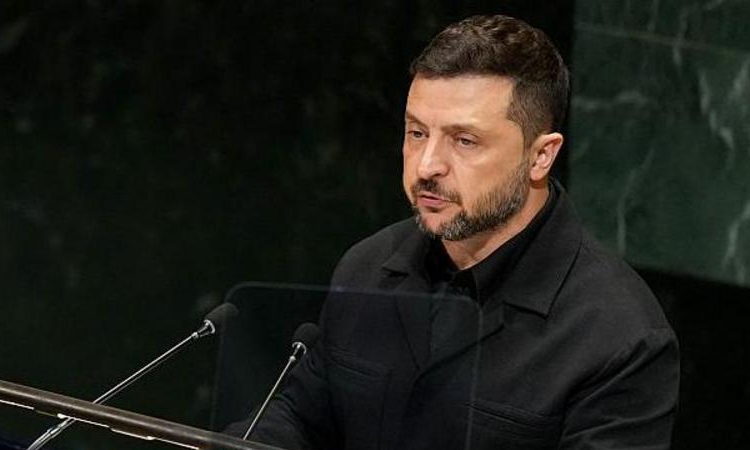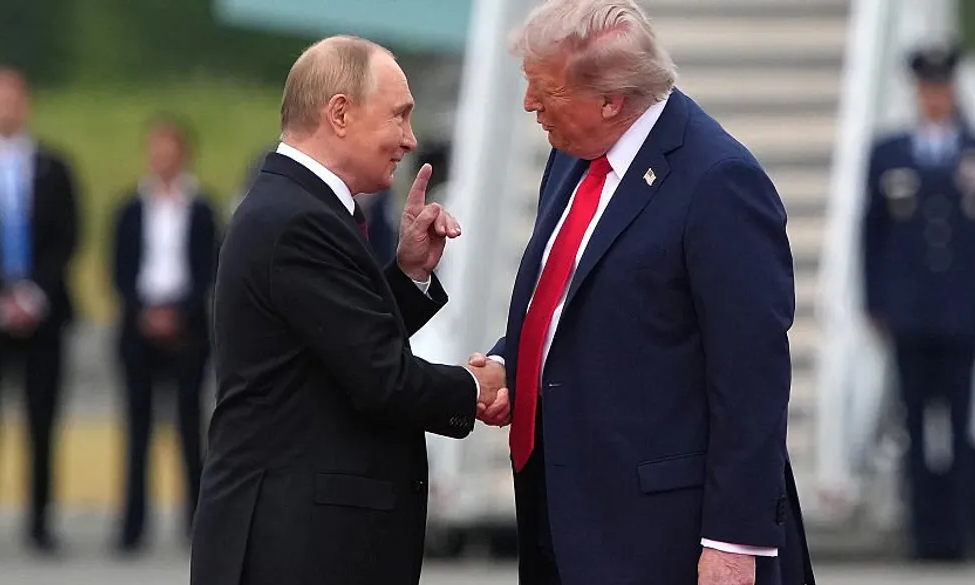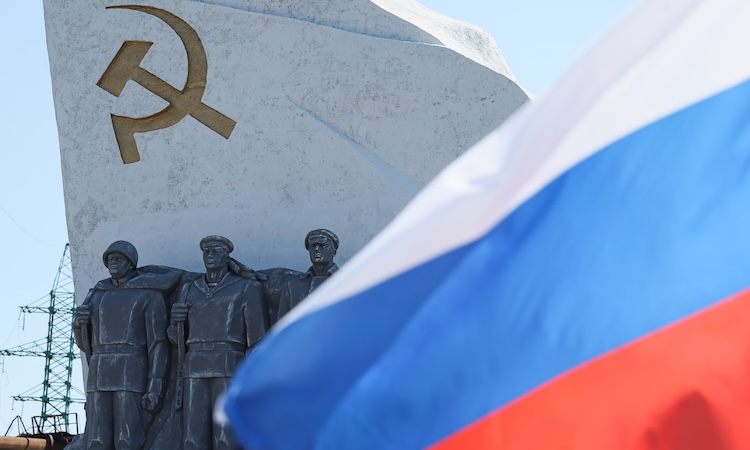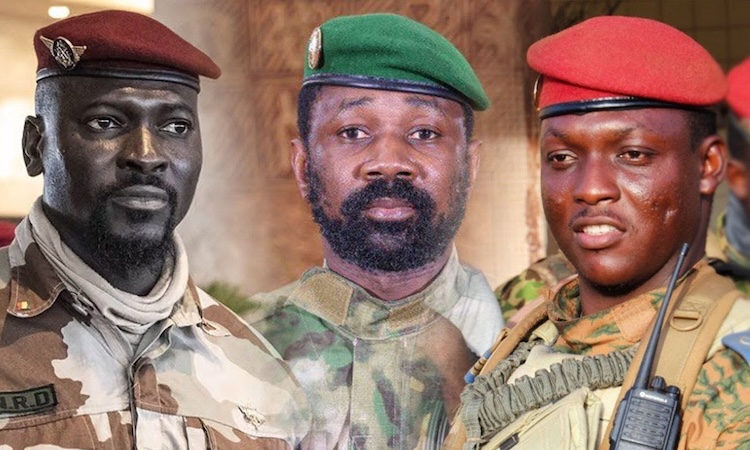We are sad to have to record that, on 31 August, the leader of the Donetsk People’s Republic (DPR, in eastern Ukraine), Alexander Zakharchenko, was brutally slain in a bomb blast in a Donetsk cafe that also injured or killed another 11 people.
The cowardly attack had all the hallmarks of Ukraine’s secret police, the SBU, and both the DPR and the Russian government in Moscow pointed the finger of blame at the western-backed junta in Kiev. On 2 September, tens of thousands came to the Donetsk opera house where Zakharchenko lay in state to pay their respects.
This foul act of state terrorism was condemned by the governments of Russia and Syria. From the ‘great and the good’ on the world stage, however, there came just a shameful silence. World leaders who at the drop of a hat will strike postures of moral outrage when it comes to accusing the Kremlin of dispatching (imaginary) teams of poisoners to the streets of sleepy Salisbury are suddenly rendered mute when confronted with the real-life assassination of a prominent anti-fascist statesman.
Those mysteriously struck dumb include the leaders of France and Germany. Yet as co-signatories of the Minsk peace accords (signed to help bring about an end to the conflict between the fascistic coup government in west Ukraine and the antifascist resistance in the east) both countries are pledged, along with Moscow and Kiev, to help smooth the way towards constructive talks between Kiev and the people’s republics that have been declared by the people of Donetsk and Lugansk in preference to succumbing to the bully boys of the Kiev junta.
For Paris and Berlin to maintain a stony silence when fascist assassins strike down the DPR’s chosen leader in cold blood makes a mockery of the Minsk process. Postponing a scheduled meeting of the ‘Normandy Four’ (comprising Paris, Berlin, Kiev and Moscow), Russian foreign minister Sergey Lavrov pointed out: “It would be plainly inappropriate to gather the Normandy format, especially since neither Berlin nor Paris condemned the political murder committed in Donetsk.” (Ukraine peace talks with EU partners inappropriate, RT, 4 September 2018)
Echoing these sentiments, Kremlin spokesman Dmitry Peskov noted: “After the perpetration of this terrorist attack it is very difficult to discuss anything with the Ukrainian side, but this does not mean that Russia is withdrawing from the Minsk process.” (Russia will stick to Minsk Accords, RT, 3 September 2018)
Some speculate that the timing of this vile crime, taken together with a possible planned new military offensive against the people’s republics, could be intended to distract Russia from its pressing task of assisting the Syrian Arab Army (SAA) in the current struggle to liberate terrorist-occupied Idlib.
Be that as it may, it is plain that the degeneration of Ukraine into the outright slave of Nato and the EU has already proved a disaster for the Ukrainian masses, with worse likely to follow.
If the murder of Zakharchenko was intended to destabilise the DPR, such blatant criminal acts, most likely sanctioned at the highest levels of state, suggest that it is the crumbling Kiev junta that is dangerously unstable, not the antifascist resistance.
Ukraine on the skids
Ukrainian president Petro Poroshenko has been bragging of late about the marvellous boost to the country’s trade balance given by the close economic ties with the US. Somehow this upbeat assessment is not shared by the masses of workers, approaching a million every year, who are voting with their feet and fleeing the country.
Meanwhile, Europe fails to hold the Kiev government to account for refusing to negotiate with the people’s republics of Donetsk and Lugansk, as Kiev is bound to do under the above-mentioned Minsk accords.
Imperialism prefers to keep Kiev’s oppressive war in the east festering away as a permanent provocation on the border of the Russian Federation, ready to be cranked up whenever a distraction is required.
Neither the welfare of the masses nor even the dispensable lives of Ukrainian servicemen count for a row of beans with the imperialist flunkeys in Kiev.
Ukraine: US vassal state
During a recent meeting with US national security advisor and notorious warmonger John Bolton, Poroshenko waxed lyrical about the supposed benefits to the Ukrainian economy of trade with the US.
The glittering achievements he cited included “supplies of American coal to Ukrainian power plants, American nuclear fuel” and “investments into construction of a facility for nuclear waste”. Yet the rich seams of anthracite coal mined in the Donbass area formerly made Ukraine one of the biggest producers of anthracite in the world. (Coal-rich Ukraine happy to transport coal from Pennsylvania on US locomotives, RT, 24 August 2018)
Anthracite is of particular importance in power generation, and is therefore key to Ukraine’s industrial sector. Since the coup of 2014 plunged Ukraine into war, with Kiev severing links with the Donbass, this readily available national resource was suddenly gone, leaving Ukrainian industry in the dark.
Poroshenko is now trying to ‘solve’ the problem, not by pursuing talks with the people’s republics, but by ‘sending coals to Newcastle’. Last year, Ukraine’s state-run energy company did a deal with a company in Pennsylvania for the latter to supply up to 700,000 tons of American anthracite. In the first quarter of 2018, the total purchase of anthracite climbed to over a million tons.
Crazier still, the plan is for all of this American anthracite, after having been physically shipped across the Atlantic, then to be carried to its final destination on board American trains. Accordingly, in February, General Electric announced a $1bn deal to supply 30 freight locomotives.
Quite who is paying for all of this is unclear, but it’s safe to assume that Ukraine will be plunged yet deeper into debt and forced into ever more humiliating tutelage by its US ‘partner’ – a disposable instrument of Washington realpolitik.
Another issue around power-generation is the disposal of used nuclear fuel rods. Until 2016, Russia took responsibility for dealing with Ukraine’s nuclear waste. It made sense, as Ukraine’s Soviet-built reactors are compatible with Russian nuclear fuel.
Indeed, the use of US fuel rods had been specifically banned because of safety fears. Now Kiev has signed an agreement for a $250m loan from the US for building Ukraine’s own waste-disposal facility, to be situated (where else?) in the Chernobyl exclusion zone.
Signed up to the project is Holtec International, a US company that specialises in the supply of (incompatible?) parts for nuclear reactors.
Exodus
From 1993 to the end of 2016 there has been a net 18 percent fall in the country’s population.
Ukraine’s foreign minister, Pavel Klimkin, went on television recently to warn that nearly a million citizens are quitting the country every year, presaging an acute labour shortage in coming years. He calculated that about three million emigres have moved to Russia and another two million have gone to Poland. Other destinations are the Baltic states, Hungary, Slovakia, the Czech Republic and Spain.
Bizarrely, the infrastructure minister, Volodymyr Omelyan, has proposed one simple solution: stop people getting on buses and trains. He warns that to this end Kiev may sever all remaining public transport links with Russia, including passenger trains and buses.
Failing this, he makes one more desperate appeal: if you must insist on leaving, at least don’t make us look bad by opting for Russia – go to Europe instead.
Such are the bitter fruits of the criminal 2014 coup, backed to the hilt by imperialism.
Down with the criminal Kiev junta!
Victory to the antifascist resistance!
















